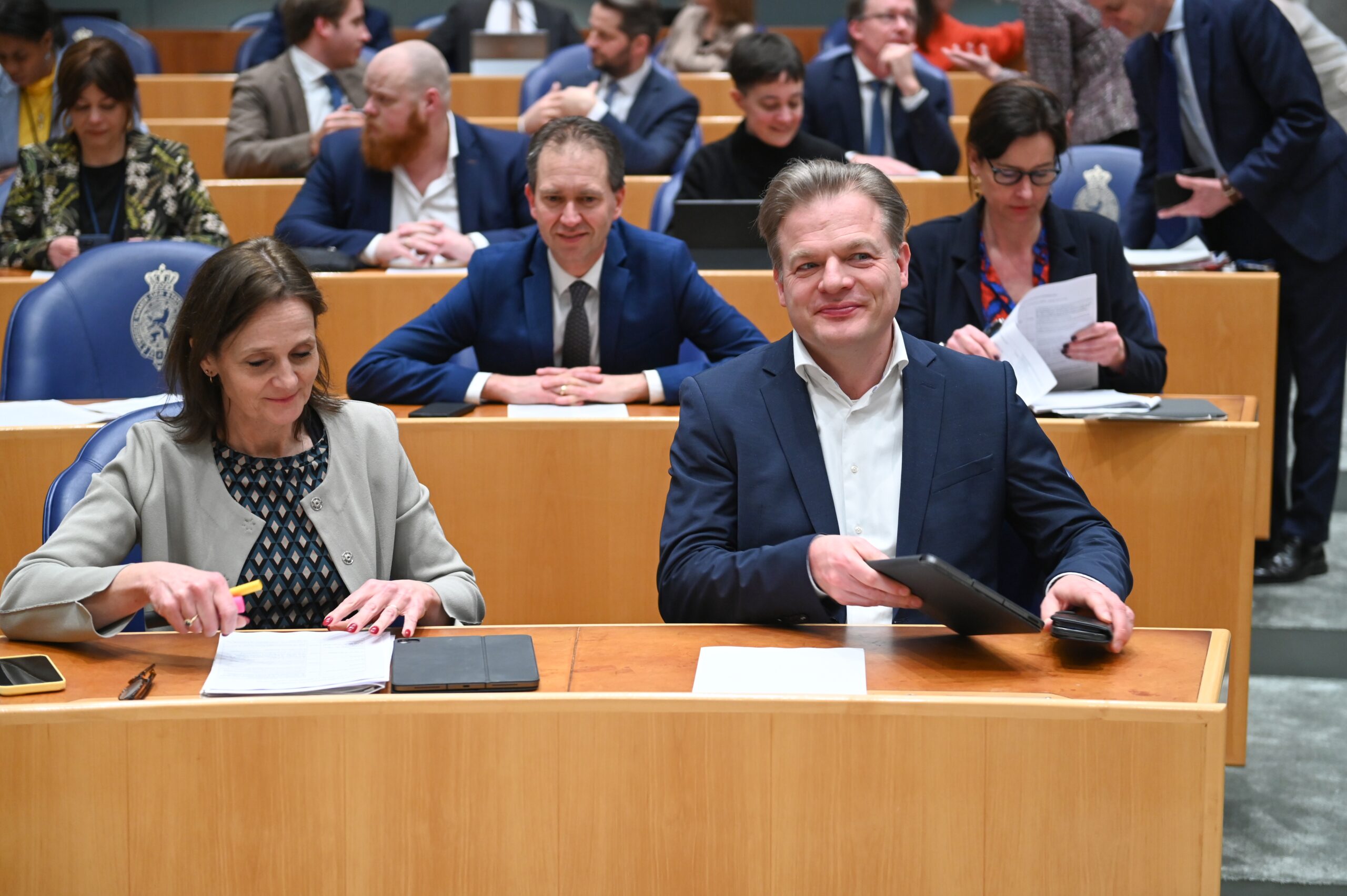All eyes on Omtzigt’s NSC as MPs debate stalled coalition talks

MPs will decide on the next stage of the process to form a new Dutch government on Wednesday after debating a report on the first round of talks between the four right-wing parties.
Attention is expected to focus on Pieter Omtzigt, leader of Nieuw Sociaal Contract (NSC), who walked out of the talks last week, claiming that crucial financial documents from government ministries had been kept from the negotiators.
In his report on the first 11 weeks of negotiations, former home affairs minister Ronald Plasterk recommended continuing discussions between the four parties under a different leader.
However, Omtzigt has already said he plans to sit out the next round, leaving Geert Wilders’s PVV party, the liberal VVD and the farmers’ party BBB to try to form a minority administration.
Dilan Yesilgöz, leader of the VVD, is also likely to come under pressure over her decision to keep her party out of cabinet but support a minority right-wing government in parliament.
At the end of the debate MPs will nominate a successor to Plasterk, which is expected to be a candidate endorsed by Wilders.
A poll by I&O Research published on the eve of the debate found that more than half of voters are disappointed in the failure of the talks to produce concrete results.
The sentiment is strongest among people who voted for NSC, a new party formed by Omtzigt in August after he split from the Christian Democrats (CDA) following the previous election in 2021.
Altogether 58% of voters blame NSC for the impasse in the negotiations, while just 42% of people who supported Omtzigt’s party in November still stand by their choice, the lowest of any of the four parties.
NSC would lose more than half of their 20 seats if an election were held now, while the VVD would drop from 24 seats to 17. Wilders’s party, already the largest, would surge from 37 seats to 49, with the BBB retaining its seven.
However, most of the shift in voting behaviour since the election has been between the negotiating parties rather than towards them. Collectively the four would win 82 seats, compared to the 88 they hold now.
Tom Louwerse, political scientist at Leiden University, said trends in seat totals were largely irrelevant so soon after an election. Another vote will not take place for several months even if the talks collapse.
“We are a long way from an election and voting preferences can shift markedly,” he told NOS. “It is more relevant now to ask voters directly about their opinions on the formation of a coalition and what parties are doing within that.”
Thank you for donating to DutchNews.nl.
We could not provide the Dutch News service, and keep it free of charge, without the generous support of our readers. Your donations allow us to report on issues you tell us matter, and provide you with a summary of the most important Dutch news each day.
Make a donation